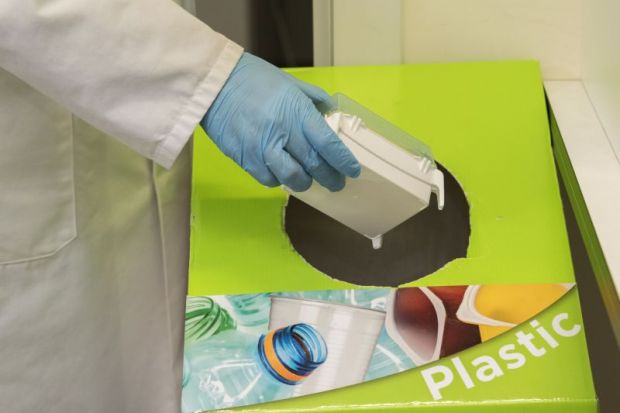Researchers trying to minimise their environmental impact as they improve human health are being let down by a lack of coordination, according to an overview of current efforts.
The study by the research institute Rand Europe, commissioned by major biomedical research funder the Wellcome Trust, found networks, certification schemes and campaigning under way, but that there was little money or leadership to guide researchers’ good work.
The greening of health research “is largely being conducted by individual researchers, unfunded and at the margins of their existing work, driven by their commitment to sustainability”, write Pamina Smith and colleagues at the institute.
There have been pockets of progress, including the Laboratory Efficiency Assessment Framework, developed by UCL, an online tool and certification programme that helps labs curb their waste and the impact of their equipment and activities, such as by travelling less, repairing machines, catching solvent vapours and recycling more single-use plastics.
Other tools such as the Green Algorithms calculator help researchers use less energy in data processing, while the Carbon Literacy Project offers training for staff on the emissions from specific actions.
“There are some established initiatives underway, but these often rely on the goodwill of researchers unsupported in their efforts to keep their work sustainable,” said Talia Caplan, research manager at the Wellcome Trust.
Rand analysts found some UK-wide guidance for biomedical research, but that this was “relatively high level and broad brush”, leaving universities, journals and funders with plenty more to do to help researchers work more sustainably.
Wellcome is working on a sustainability policy covering all grant holders, which it has said it expects to come out by the end of the year.
“Research will be crucial in mitigating the health impacts of climate change, but until sustainability becomes the standard, research will continue to be part of the problem,” said Alan Dangour, the funder’s director of climate and health. “We should all be ready to show how we are working to assess and to minimise the environmental impact of our research.”
The costs and urgency of shrinking the footprint of research and higher education have climbed the agenda in recent months, with the price tag for decarbonising UK universities’ buildings, transport and supply chains pegged at £37 billion.
Some have suggested academia must take an outsized role in fixing the problem, with the president of Arizona State University, Michael Crow, also claiming scholarship has been central to the environmental footprint of modern lifestyles and that universities must take “heroic action” to atone.
Register to continue
Why register?
- Registration is free and only takes a moment
- Once registered, you can read 3 articles a month
- Sign up for our newsletter
Subscribe
Or subscribe for unlimited access to:
- Unlimited access to news, views, insights & reviews
- Digital editions
- Digital access to THE’s university and college rankings analysis
Already registered or a current subscriber? Login








